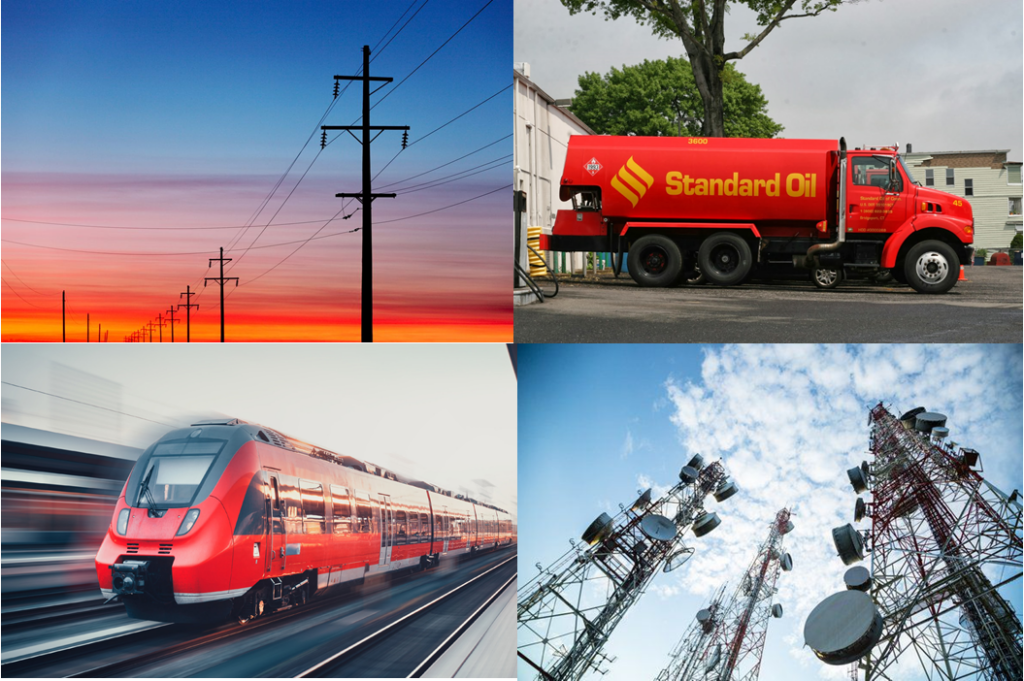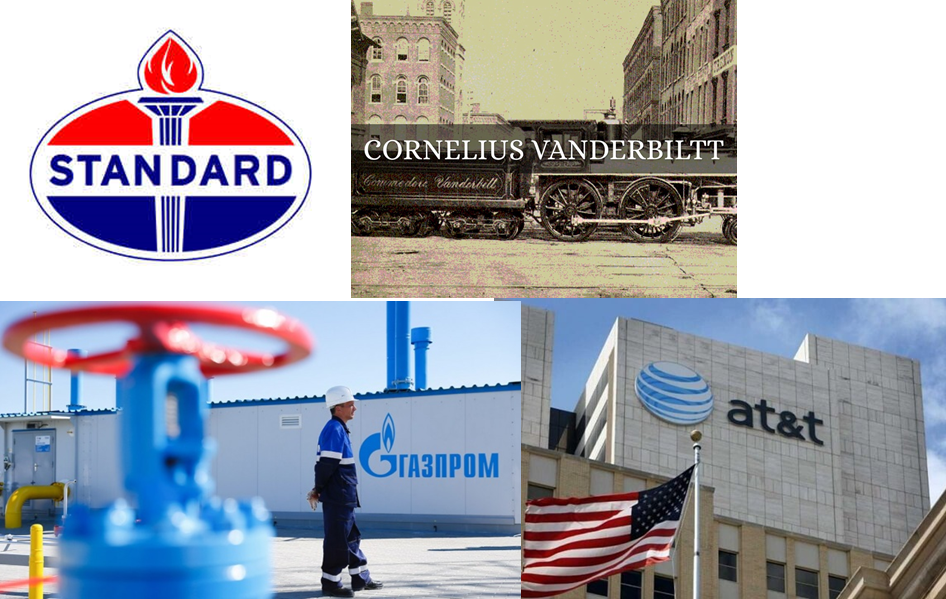A natural monopoly is a kind of monopoly that happens because of economies of scale (cost-cutting advantages of companies while expanding their production). A natural monopoly occurs when a single business supplies the whole market with a particular product with no competition because of considerable barriers to enter the market such as expensive fixed asset costs and start-up price, rigor in procuring raw materials, building networks, and many more.
Examples of the natural monopoly include:
- Gas network
- Energy Grid
- Railway infrastructure
- Regional Bus Services
- Operating Systems

It is beneficial to have a natural monopoly in the economy because the products and services offered by these natural monopoly companies are limited resources efficiently, providing the lowest unit price to consumers. However, the government must regulate these companies to ensure consumers get fair pricing and services.
Contents
Contents
Natural Monopoly companies in the US
Public utilities are the leading example of a natural monopoly that has provided electricity, water, gas, telecommunication services across the United States such as:
- Pacific Gas & Electric- a utility company that provides natural gas and electric service to the vast majority of Northern California, regulated by the California Public Utilities Commission (CPUC).
- Southern California Gas Company (SoCalGas)- the largest natural gas distribution utility in the United States, operating as a monopoly in Central and Southern California for decades. They have fixed service boundaries that consumers cannot pick other suppliers.
- Northern Pacific Railway- is a transcontinental railroad that operated across the US northern range. In 1883, it raised the O.A. Dodge’s Idaho lumber company rates, which caused Dodge’s inability to compete with its rival, Montana Improvement Company.
- Maryland Transit Administration-is a monopoly legally mandated over mass transportation that politicizes pricing. Its relationship with politicians, unions, and low-income constituents’ outlaw rivals, prevent innovation and options.
Top Natural Monopoly Companies in the World
In the history of economics, only a handful of companies benefited from being the sole provider of utilities in their respective areas. Some of the identified natural monopoly companies ever recorded in history are:
- The Standard Oil Company– founded by John D. Rockefeller (1839-1937), which by the early 1880s controlled some 90% of U.S. refineries and pipelines. There were accusations that he engaged in unethical ways to eliminate his competitors, such as rapacious pricing and conspiring with railroads. (Phentermine) In 1911, the court ordered the dissolution of standard oil due to its violations of Antitrust Law.
- Cornelius Vanderbilt’s Railroads– The birth of textile mills in the 1830s gave way to the first railroads in the United States. In the 1850s he had concentrated on railroads, buying up so much stock in the New York and Harlem Railroad, later he acquired the Hudson River Railroad and the New York Central Railroad.
- AT&T Corporation- in the 20th century, AT&T was the world’s largest telephone company, cable television operator, and a regulated monopoly that catered the United States and Canada through a network of companies called the Bell System. In 1974, the United States Justice Department opened the case against AT&T for suspicion of violation of antitrust law, for using monopoly profits from its Western Electic (primary equipment supplier and purchasing agent of AT&T) to finance the cost of its network. The case was settled in 1982, dividing the company into seven regional bell operating companies (Baby Bells).
- Gazprom– is one of the largest natural gas companies that control its gas processing facilities in Russia and operates Russia’s high-pressure gas pipelines. Since 2006, Gazprom has held a legal export monopoly. It forces competitors to use their facilities for the processing and transport of natural gas.

What are the potential natural monopolies
- Airplane manufacture – The fixed cost in airplane manufacturing is expensive. However, it is still categorized as a duopoly and not a natural monopoly because two suppliers can predominate the global market.
- Digital Apps- The automation of most of our systems include private taxi services using apps (e.g., Uber, Lyft, Curb, etc.). Its fixed cost is not significantly high, but the predominant company benefits from network economies, updated information, and lower prices.
Government Supported Natural Monopolies
The government usually regulates the existing natural monopolies to avoid abuse of the company’s market power and extreme price increase. In some cases, the government encourages and allows natural monopolies to exist under their jurisdiction. The government allows these monopolies because they are the best and efficient option for both consumers and producers. Essentially, there are two types of government-initiated monopoly which are government-granted Monopoly and Government Monopoly, and some of the identified government-supported monopolies include:
- Saudi Arabian Oil Company or Aramco- is a state-owned petroleum company that is one of the world’s biggest crude producers.
- PDVSA– dominating the crude export under Venezuelan law.
- United States Postal Service– has a legal monopoly over various types of mail services. It outlaws its potential competitors from providing services such as first-class and standard mail delivery.
- Dutch East India Company – is a historical example of a government-granted monopoly on commodities such as spices, textiles, yarn from India, and gems from Sri Lanka.